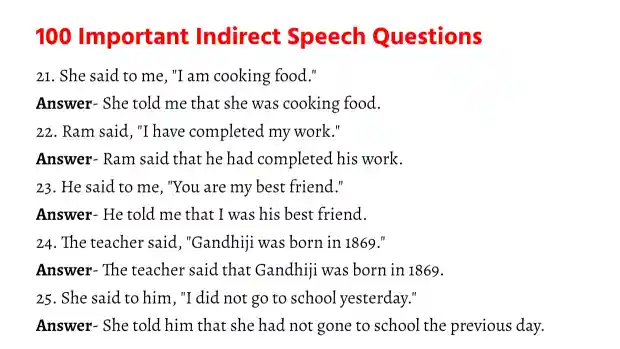1. Read more in English
One of the best ways to improve your English grammar is to read more in English. Reading exposes you to different styles, structures, and vocabulary of the language. It also helps you learn how to use grammar correctly and naturally in different contexts. You can read anything that interests you, such as books, magazines, newspapers, blogs, or websites. Try to read a variety of texts and genres, and pay attention to how the sentences are formed and how the punctuation is used. You can also use a dictionary or a translator to look up any unfamiliar words or phrases.
2. Listen to podcasts, audiobooks, and songs in English
Another way to improve your English grammar is to listen to podcasts, audiobooks, and songs in English. Listening helps you improve your pronunciation, intonation, and comprehension of the language. It also helps you learn how to use grammar in spoken English, which can be different from written English. You can listen to podcasts, audiobooks, and songs that match your level and interest, and try to repeat or sing along with the speakers or singers. You can also use subtitles or lyrics to help you understand the meaning and the grammar.
3. Watch movies, TV shows, and videos in English
Watching movies, TV shows, and videos in English is another fun and effective way to improve your English grammar. Watching helps you improve your listening and speaking skills, as well as your vocabulary and cultural knowledge. It also helps you learn how to use grammar in different situations and registers, such as formal, informal, casual, or slang. You can watch movies, TV shows, and videos that suit your taste and level, and try to imitate the actors or the hosts. You can also use captions or transcripts to help you follow the dialogue and the grammar.
4. Write more in English
Writing more in English is also a great way to improve your English grammar. Writing helps you practice and consolidate what you have learned from reading and listening. It also helps you express your thoughts, opinions, and feelings in the language. You can write anything that you want, such as emails, messages, journals, essays, stories, or blogs. Try to write regularly and use different types of writing, such as descriptive, narrative, persuasive, or expository. You can also use a grammar checker or a proofreader to help you correct your mistakes and improve your writing.
5. Learn the basic rules and patterns of English grammar
Learning the basic rules and patterns of English grammar is also essential to improve your English grammar. Learning the rules and patterns helps you understand how the language works and how to use it correctly and accurately. You can learn the basic rules and patterns of English grammar from various sources, such as textbooks, websites, apps, or online courses. Try to learn the rules and patterns in a systematic and logical way, and use examples and exercises to practice and renforce them.
6. Learn the exceptions and variations of English grammar
Learning the exceptions and variations of English grammar is also important to improve your English grammar. Learning the exceptions and variations helps you avoid common errors and confusion in the language. You can learn the exceptions and variations of English grammar from various sources, such as dictionaries, guides, or tips. Try to learn the exceptions and variations in a flexible and adaptable way, and use context and clues to determine the best usage.
7. Learn from your mistakes and feedback
Learning from your mistakes and feedback is also a key to improve your English grammar. Learning from your mistakes and feedback helps you identify your strengths and weaknesses, and improve your performance and progress. You can learn from your mistakes and feedback from various sources, such as teachers, tutors, peers, or online tools. Try to learn from your mistakes and feedback in a positive and constructive way, and use them to revise and improve your grammar.
8. Compare and contrast different forms of English
Comparing and contrasting different forms of English is also a useful way to improve your English grammar. Comparing and contrasting different forms of English helps you learn the similarities and differences between them, and how to use them appropriately and effectively. You can compare and contrast different forms of English from various sources, such as British English, American English, Australian English, or Indian English. Try to compare and contrast different forms of English in a curious and respectful way, and use them to enrich and diversify your grammar.
9. Learn from native and fluent speakers of English
Learning from native and fluent speakers of English is also a valuable way to improve your English grammar. Learning from native and fluent speakers of English helps you learn how to use grammar naturally and fluently in the language. You can learn from native and fluent speakers of English from various sources, such as friends, family, colleagues, or online platforms. Try to learn from native and fluent speakers of English in a friendly and interactive way, and use them to practice and improve your grammar.
10. Have fun and enjoy learning English grammar
Having fun and enjoying learning English grammar is also a vital way to improve your English grammar. Having fun and enjoying learning English grammar helps you stay motivated and engaged in the language. You can have fun and enjoy learning English grammar from various sources, such as games, puzzles, quizzes, or jokes. Try to have fun and enjoy learning English grammar in a playful and creative way, and use them to make your grammar learning more enjoyable and rewarding.
Conclusion
English grammar is an important and challenging aspect of learning the language. However, it can also be fun and rewarding if you use the right methods and strategies. In this blog post, we have shared with you 10 ways to improve your English grammar skills and master the language. We hope you find them helpful and useful, and we encourage you to try them out and see the results for yourself. If you have any questions, comments, or suggestions, please feel free to leave them below. We would love to hear from you and help you with your English grammar learning journey.
Discover more from Gyankundli
Subscribe to get the latest posts sent to your email.


















1 thought on “10 Ways to Improve English Grammar”